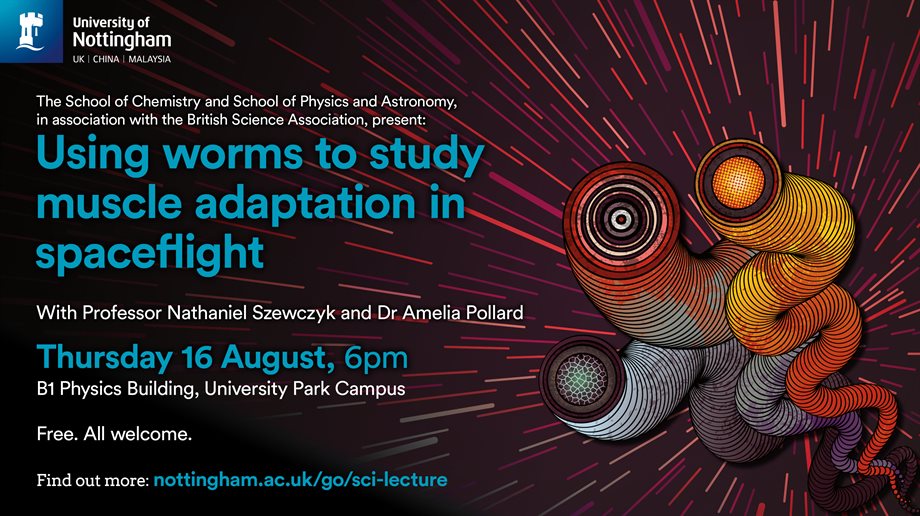
The School of Chemistry and School of Physics and Astronomy, in association with the British Science Association, present:
Using worms to study muscle adaptation in spaceflight, a lecture by Professor Nathaniel Szewczyk and Dr Amelia Pollard.
We will discuss how we have been using worms to study muscle adaptation to spaceflight in the past, how this appears to be relevant to health on Earth, and explain both what we are testing in our upcoming spaceflight experiment and how we actually run the experiment.
Loss of muscle mass and performance is one of the most pronounced and repeatedly observed adaptations to spaceflight. This is problematic for human space exploration. If not treated, loss of muscle performance can make it difficult for astronauts to work in space and can even leave them with poor health. Past spaceflight experiments have repeatedly shown changes in the tiny molecules that make up muscle. Changes in these tiny parts of muscle are observed not just in astronauts but also in other animals in space, including worms. For example, reduced expression of molecules that are components of insulin-mediated metabolism and of mechanically sensitive muscle attachment complexes occur across species. On Earth these same alterations produce weaker muscles and disease (diabetes and muscular dystrophy). Whether these molecular changes cause muscle loss in space and if targeting these systems can counteract such changes remain unknown. We will test the causal role of these changes on the Molecular Muscle Experiment, currently scheduled for launch in November.
This event is free. All welcome.